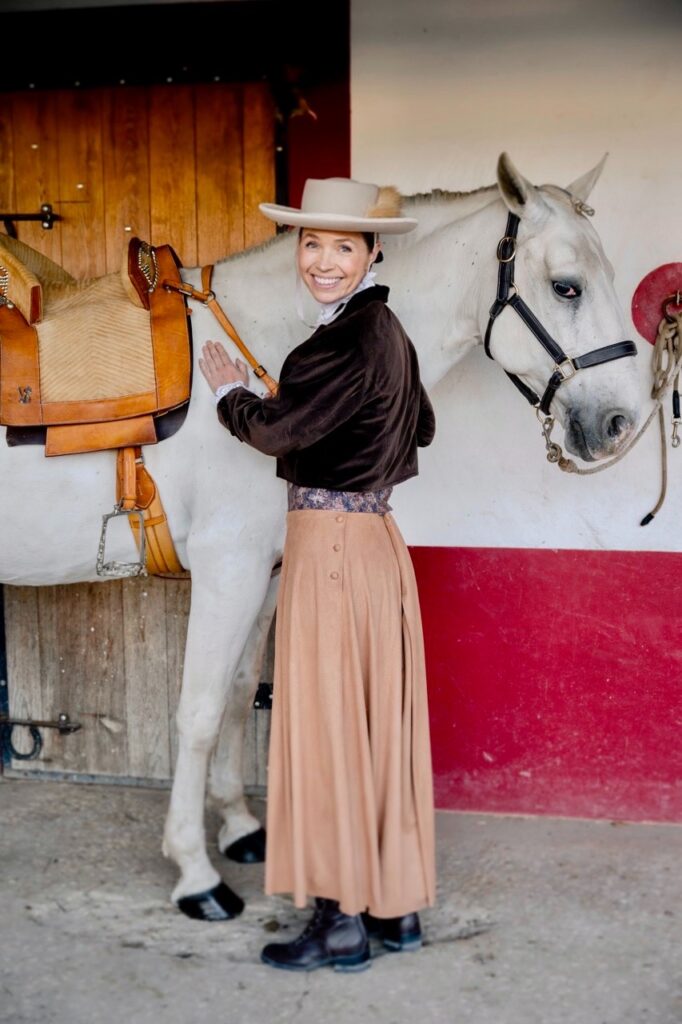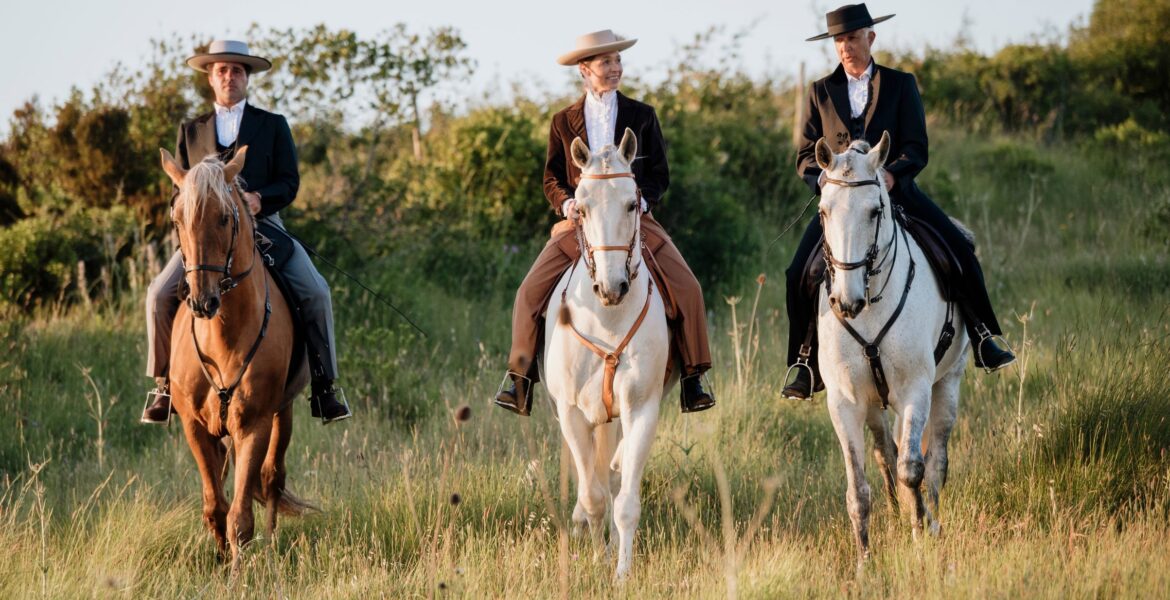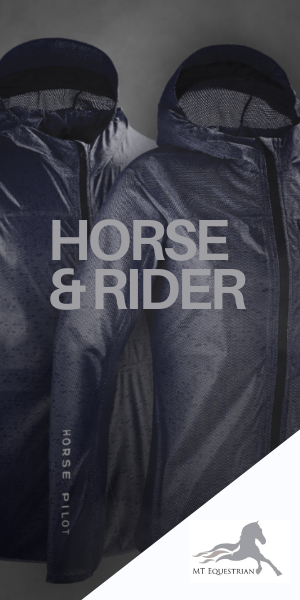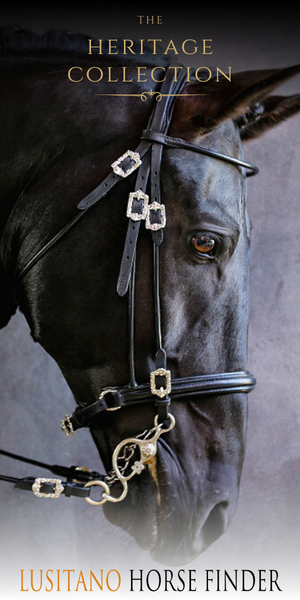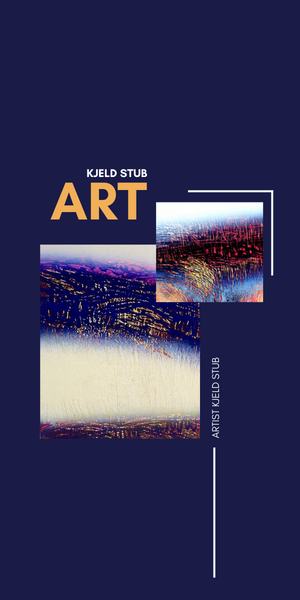Nestled just 30 minutes from Lisbon, Lusitano Heritage offers a unique journey into Portugal’s equestrian world. From sunset trail rides in traditional costumes to learning classical dressage under expert guidance, every moment immerses you in the beauty, history, and harmony of the Lusitano horse.
By Therese Alhaug. Photo Lena Saugen.
Our stay at Lusitano Heritage in Malveira, just 30 minutes from Lisbon airport, was something truly special. The stables are set in a quiet mountain village, and from the moment we arrived, we felt both welcome and at ease.
We started our visit by stepping into history—dressed in traditional Portuguese riding costumes, we set out on a trail ride through the hills behind the stables. The timing could not have been better: riding at sunset, surrounded by stunning scenery and these beautiful Lusitano horses, was unforgettable. The costumes, the tack, and the light of the evening sun made it all feel like we were part of something timeless.
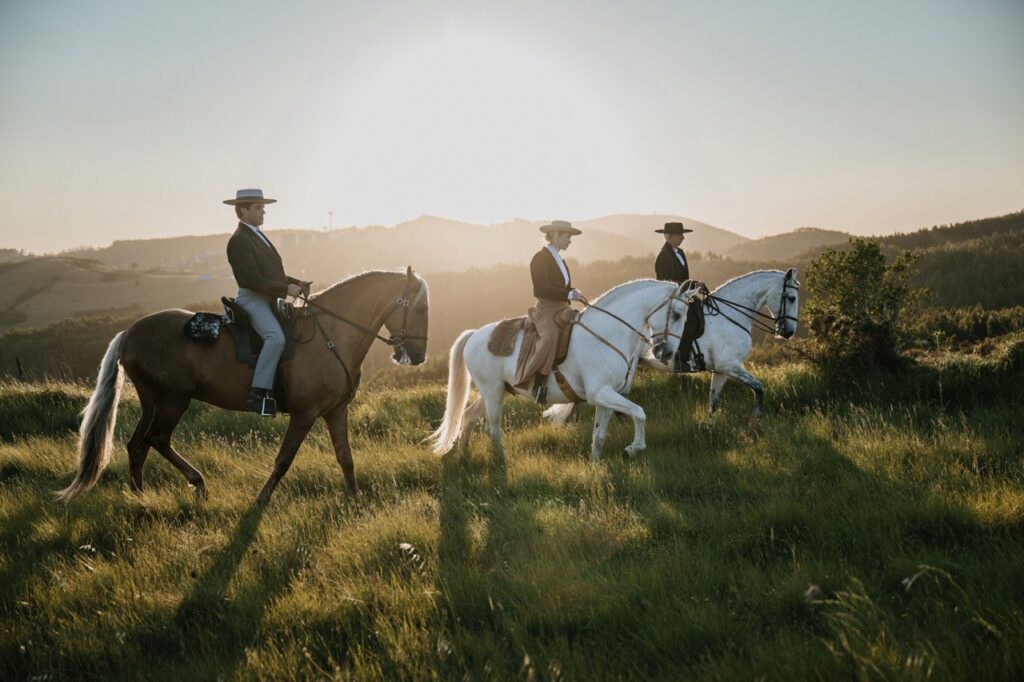
The Lusitano horse is one of the world’s oldest breeds, with a history that goes back to pre-Roman times. Originally bred as a war horse, the Lusitano carried warriors and nobility into battle, developing strength, agility, and incredible courage. Later, the breed was also used for cattle work, requiring quick reflexes, intelligence, and bravery to manage livestock. Today, these qualities make the Lusitano ideal not only for classical dressage but also for Working Equitation, where precision, speed, and responsiveness are key. Known for their loyalty and strong bond with people, Lusitanos remain a living connection to Portugal’s rich equestrian history.
We had the chance to try both. Classical dressage is about harmony between horse and rider—it’s not just about movements, but about trust, balance, and lightness. Working Equitation adds an element of challenge, combining dressage skills with obstacles, agility, and speed. Both showed us the versatility and character of these horses.
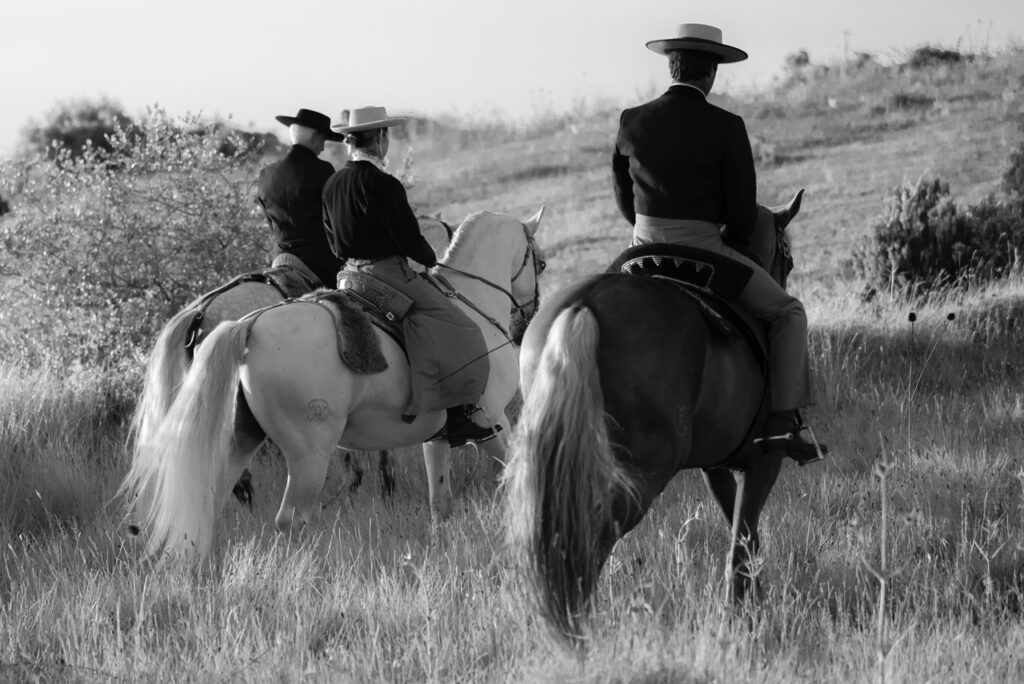
The Lusitano horse, with roots as a fearless war horse and skilled cattle partner, carries centuries of Portuguese equestrian heritage into every ride.
A big part of the experience was the people. Nuno Cavaco, with his 25 years of experience from the Portuguese School of Equestrian Art, is not only an excellent trainer but also very funny, kind, and patient. His approach is always about working in harmony with the horse. Alongside him is Teresa Burton, whose warm and spiritual personality makes you feel relaxed and at home from the very first moment. Together they run the yard—a perfect mix of hospitality and world-class classical riding knowledge.
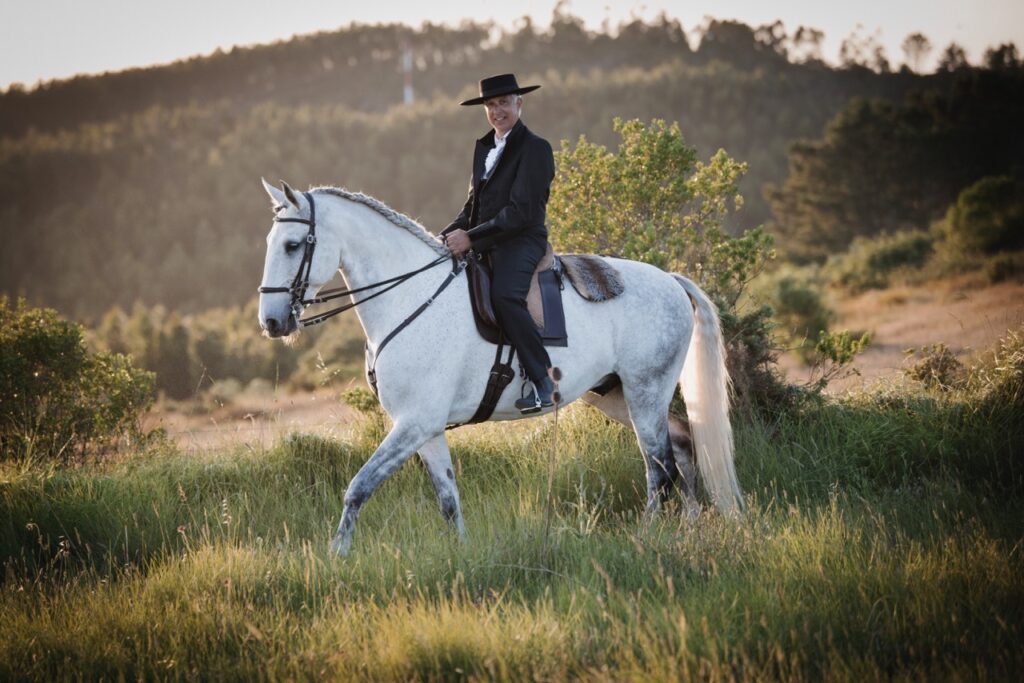
The atmosphere at Lusitano Heritage is calm and inspiring. The horses live in large, shaded paddocks with grass and sand, offering protection from sun and rain, and a beautiful, well-kept stable provides comfort and shelter. Lessons are always tailored to your level, so whether you are a beginner or experienced, you get personal guidance on how to improve your riding and partnership with the horse.
For accommodation, there are plenty of options: you can stay in the village, by the beach in Ericeira, just 20 minutes away, or in Lisbon if you enjoy city life. For us, staying in the old Portuguese house at the yard made the experience even more authentic and relaxing.
For us, the combination of riding out in traditional style, learning about classical dressage, and being welcomed so kindly by Teresa and Nuno made this a truly unique stay. A perfect and unique way to experience Portugal’s horse culture in the most authentic and personal way.
